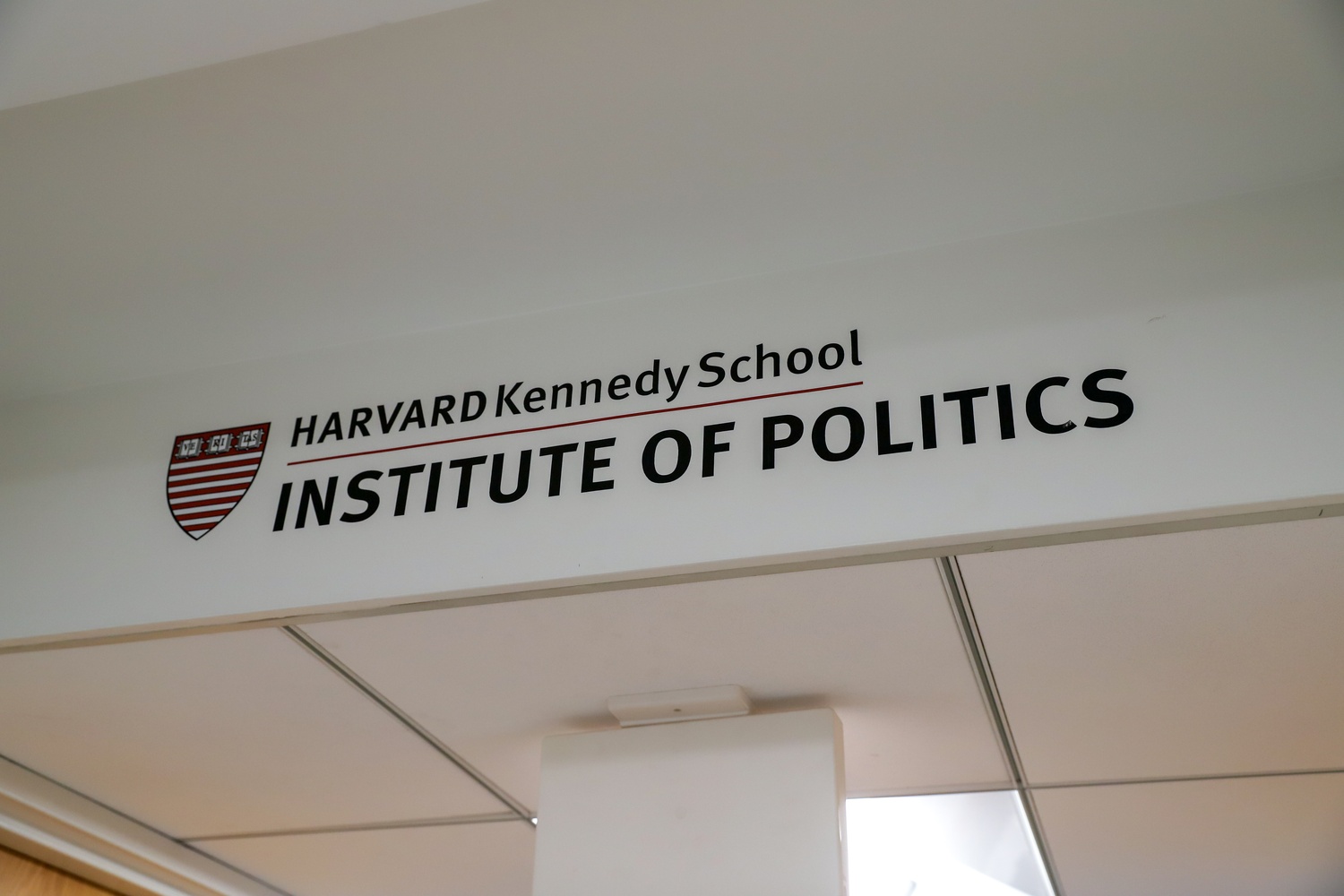
News
Summers Will Not Finish Semester of Teaching as Harvard Investigates Epstein Ties

News
Harvard College Students Report Favoring Divestment from Israel in HUA Survey

News
‘He Should Resign’: Harvard Undergrads Take Hard Line Against Summers Over Epstein Scandal

News
Harvard To Launch New Investigation Into Epstein’s Ties to Summers, Other University Affiliates

News
Harvard Students To Vote on Divestment From Israel in Inaugural HUA Election Survey
IOP Upgrades Environmental Action Coalition to Pilot Program

The Institute of Politics leadership voted narrowly last week to upgrade the Environmental Action Coalition to a pilot program, bringing the total number of IOP programs to 17.
IOP programs accept students on an application basis to participate in exclusive programming supported by IOP funding and mandatory weekly meetings with staff. Coalitions, in contrast, receive sporadic funding and are open to any interested student.
According to Environmental Action Coalition chair Sylvie S. Wurmser ’27, members of the Student Advisory Committee raised concerns that adding another program would “dilute” quality across the board. But SAC ultimately sided with Wurmser and her program.
“I think there is a risk of having way too many programs, and then staff not being able to put time into the existing ones or money getting diluted across programs,” Wurmser said. “But we discussed the real necessity and enough people were convinced that this plays an important need.”
The EAC – established just last fall – brings together students for roundtable conversations surrounding environmental policy. In the past year, the coalition hosted events with South Korea Climate Ambassador Raekwon Chung and former Obama climate advisor Jody Freeman, among others.
Wurmer said that the vote to move the Environmental Action Coalition to a pilot program endows the group with more resources — and increased credibility in the IOP.
“Coalition, I think, lacks legitimacy of the program, and it also has a lot more identity-based nature to it,” Wurmser said.
Current IOP coalitions include the Coalition for the Arts, the Athlete Coalition, Conservative Coalition, Gender & Sexuality Coalition, and Service Coalition.
“For me, environmental politics cannot be a small identity group that puts on a couple of events a semester. We want this to be a commitment for our students,” Wurmser said.
While in its “pilot” semester, the Environmental Action Program will be treated like any other program. At the end of the semester, SAC will take a second vote on whether to make the program status permanent.
“With any programming expansion, SAC’s funding and staffing responsibilities come to the fore,” IOP communications director Lorenzo Ruiz ’27 wrote in a statement. “For that reason, the Executive Team and SAC always seek a rigorous internal evaluation and spirited discussion — coupled with a measured, incremental approach to additions.”
“This SAC votes reflect both a clear willingness to advance EAC’s offerings and the careful reflection that comes alongside any evolution in the IOP’s programs,” he added.
An Institute of Politics spokesperson did not immediately respond to a request for comment on staffing and funding for the new program.
The decision to establish the Environmental Action Program comes just after SAC voted to elevate the Coalition for Global Affairs from a pilot program to a full-time program. The newly-minted Global Affairs Program spent the spring semester as a pilot program.
The Global Affairs Program promotes discussion about international relations and diplomacy. They host two speaker series: “Diplomatic Dialogues” talks with former and current ambassadors and “World Stage” roundtable discussions for students to connect with regional leaders.
Erik Dalaker ’27, co-chair of the Global Affairs Program, said that while the group benefited from increased staff support and funding, the “soft influence” of program status was most essential to its growth over the past semester.
“Being able to call ourselves an IOP program makes a lot of difference in actually reaching out to our speakers and confirming dates, confirming events,” Dalaker said.
—Staff writer Elise A. Spenner can be reached at elise.spenner@thecrimson.com. Follow her on X at @EliseSpenner.
—Staff writer Tanya J. Vidhun can be reached at tanya.vidhun@thecrimson.com. Follow her on X @tanyavidhun.
Want to keep up with breaking news? Subscribe to our email newsletter.
